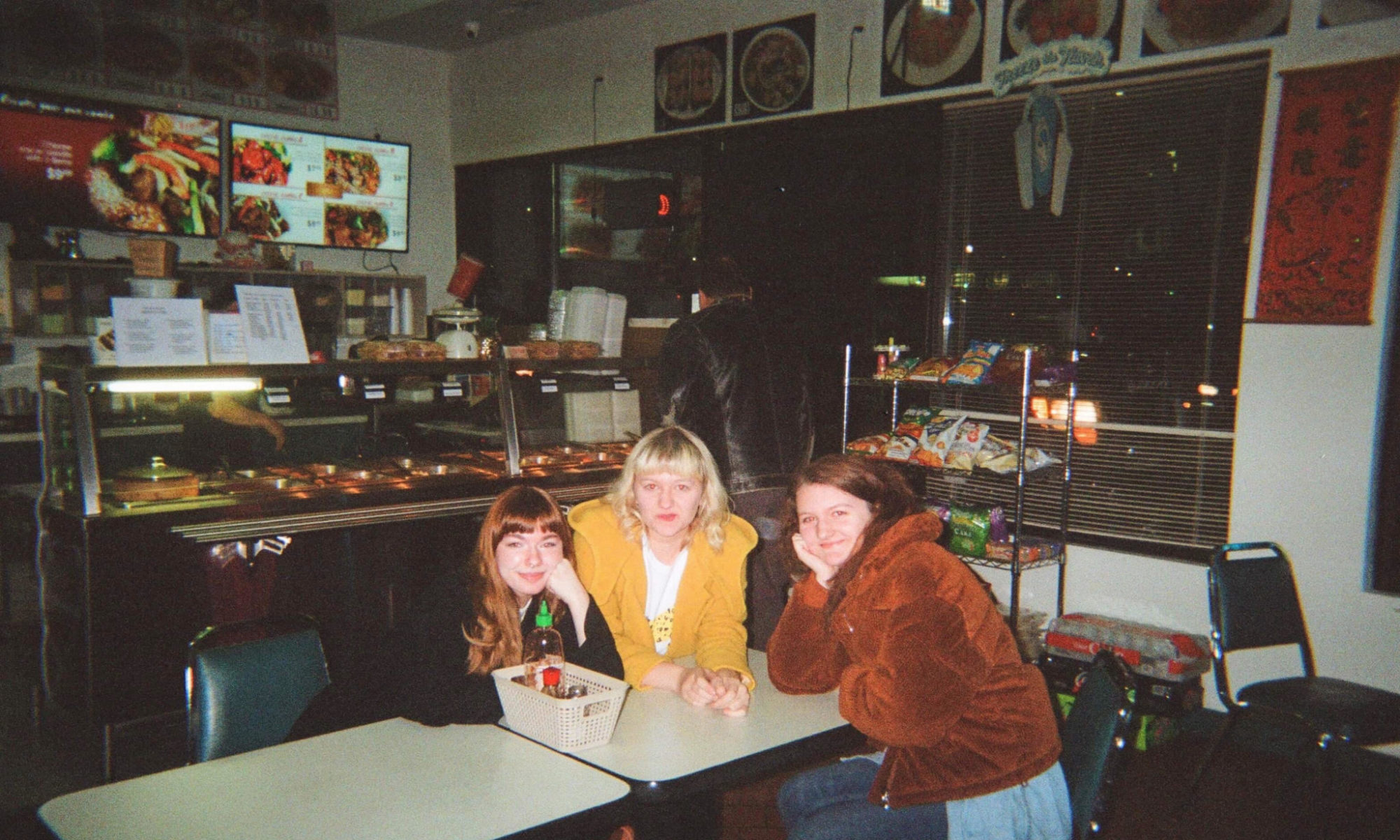by Adrienne Yeung
Forget the map. A pair of headphones and Memoryhouse’s debut LP, The Slideshow Effect, are all you need to find a little oasis of sepia-toned zen anytime, anyplace. (It also helps if you have the muscle tone to not drop your backpack on a stranger’s foot like I did when I was chilling/dozing to this during my commute.) The duo behind this ambient, invigorating pop consist of Guelph natives Evan Abeele and Denise Nouvion, who took the time to play Q&A with Stylus.
Forget the map. A pair of headphones and Memoryhouse’s debut LP, The Slideshow Effect, are all you need to find a little oasis of sepia-toned zen anytime, anyplace. (It also helps if you have the muscle tone to not drop your backpack on a stranger’s foot like I did when I was chilling/dozing to this during my commute.) The duo behind this ambient, invigorating pop consist of Guelph natives Evan Abeele and Denise Nouvion, who took the time to play Q&A with Stylus.
Stylus: So what’s the meaning behind the title The Slideshow Effect?
Evan Abeele: I think our album title reflects on the various ways we tend to create a narrative for our lives; a running story of where you’ve come to be, and how you got there. This concept is reinforced by the songs themselves, which I view as little snapshots of where Denise and I grew up, and what kind of music defined that period.
Stylus: Denise, do you set out to take pictures with the intention of gathering material for a song?
Denise Nouvion: No, I think my photography is more or less just an intuitive reaction to things around me. I like when my photographs are able to convey a story or a history, without being too imposing or upfront. I want there to be a little mystery, something inviting to pull people into the world I’m trying to portray.
Stylus: Can you give a quick description of the images you chose for the album?
EA: The cover image is important, it’s a shot of a girl tenuously holding onto an old tree trunk above this old lake we used to frequent as children. The photo is double-exposed; it’s a visual metaphor for how people tend to misremember the past (generally in their favour). Again, it comes back to the idea of self- narrative, and how our past isn’t really all that it seems.
Stylus: Evan, how many instruments do you play, and is there one that you find yourself drawn to the most?
EA: I used to approach playing instruments with a weird mentality; I wanted to play everything! And I did, for a very long time, play everything, but as I matured as a songwriter, I found that playing so many instruments led to a lack of creative focus. Piano is my strongest instrument, and up until our LP I did most of my writing on piano. However, I’ve since decided to play guitar almost exclusively. I find it very thrilling, guitar is a little unnatural for me, but I get to be creative with it without having to follow any rules.
Stylus: Your songs have a really soothing, ambient quality to them. But it’s obvious that you’ve spent just as much time on giving the lyrics the same beauty. What takes precedence, the story you’re trying to tell or the atmosphere?
EA: The story is always the focus. I had feared that our use of texture and atmosphere could become a bit overwhelming, so I think we really tried to bring the narrative to the forefront with this album, because we really do like the lyrics we write, so it’s nice when people can identify and connect with them.
Stylus: Is Memoryhouse’s sound today different at all from what you two set out to create two years ago?
EA: Yes, I hope so. Two years ago we really started from scratch, we were very slowly figuring out what our strengths were, and figuring out how to work them into the material we were writing. I feel more confident as a writer and performer now, so we’re more able to explore a greater depth and nuance in our songwriting. I think our songs “breathe” a lot better now. Everything feels more open and inviting, and it’s a bit easier to place the phrases we’re playing.
Stylus: When you feel creatively blocked, what are some things you do to get re-inspired?
EA: I try to change things up often. After we recorded our LP I felt that I needed to clean house so I could approach things differently. I started listening to different music, reading different authors… things like that. When art begins to feel like a routine, it is easy to get trapped into certain modes and rhythms, and I think it’d be unfortunate to not want to actively pursue new art forms that you can (hopefully) learn from.
Stylus: What’s a situation in which you’d imagine someone listening to The Slideshow Effect?
EA: I guess the ideal situation would be disconnecting from the thousands of distractions we all endure on a daily basis and just listen to the album in something approaching a “pure state.” It’s always a little frightening when I see people listening to an album live on Twitter, while reviewing it on-the-go. Great albums take time and investment on the part of the listener, so I’d really like to see that approach taken towards our album. But yes, I’m sure a common situation would be something like listening to the album while reblogging a picture of cats surfing on hot dog bun on Tumblr.


